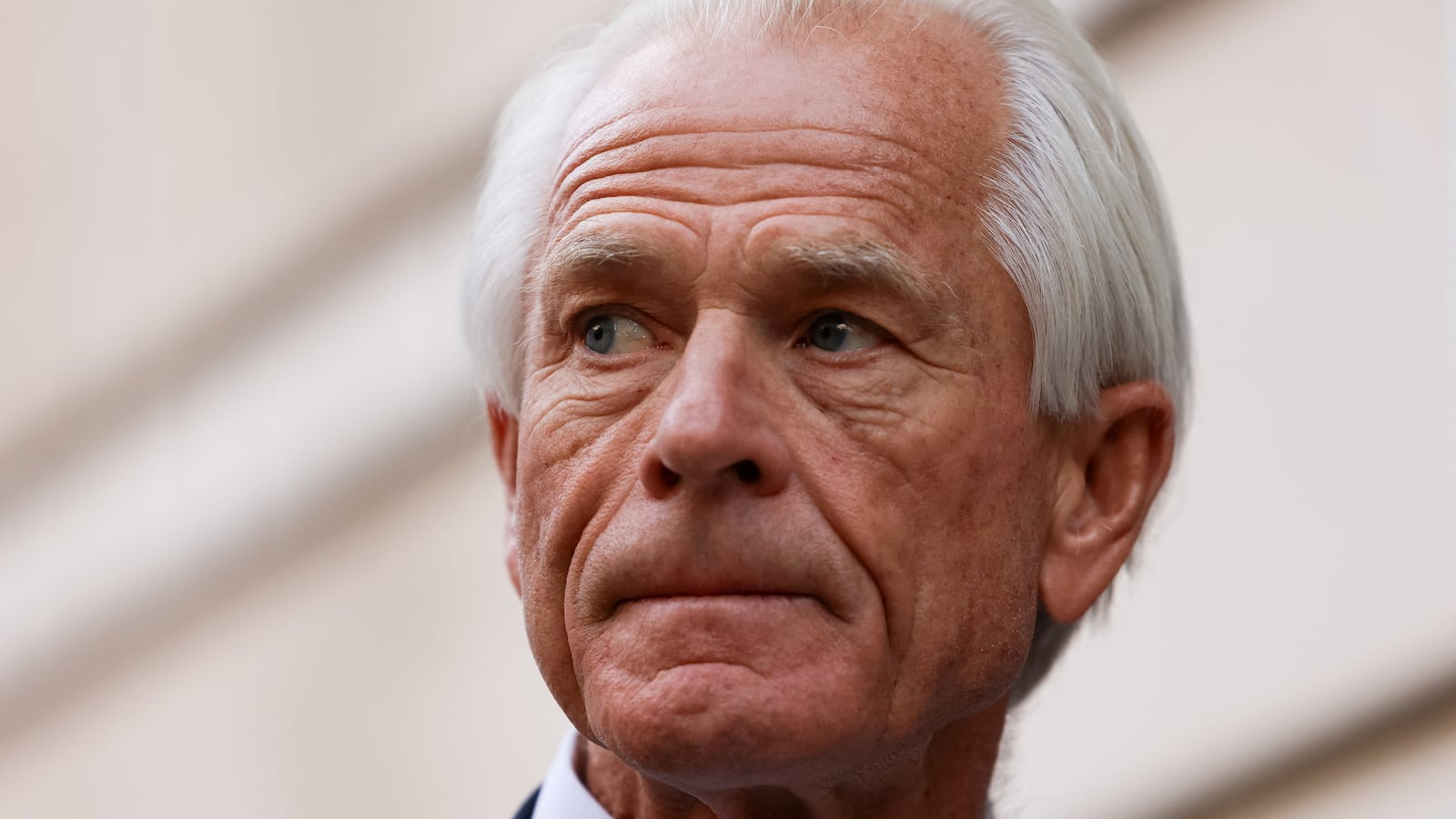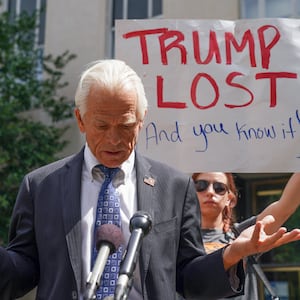Peter Navarro, the former White House aide to Donald Trump who was convicted last year on a pair of contempt of Congress charges for refusing to comply with a Jan. 6 committee subpoena, was sentenced to four months in a federal prison on Thursday.
Navarro, 74, will also have to pay a $9,500 fine, ruled U.S. District Judge Amit Mehta.
“They had a job to do and you made it harder,” said Mehta on Thursday, slamming Navarro’s refusal to testify in front of Congress. “It’s really that simple.”
Navarro initially indicated he wouldn’t speak at his sentencing hearing, citing his lawyers’ advice, but he changed his mind, insisting before the court that he thought he was protected by executive privilege when he ignored the committee’s subpoena.
“I just want you to know that when I received that congressional subpoena, you acknowledged correctly that I had an honest belief that privilege had been invoked and I was torn,” Navarro said, speaking to Mehta.
He added: “The minute that violence erupted on Capitol Hill was one of the worst days of my life.”
Thursday’s sentencing decision came after prosecutors pushed hard for Navarro to spend at least six months in the clink, arguing he “thumbed his nose at congressional authority” and deployed a “bad-faith strategy” to avoid answering questions about what preceded the 2021 attack on the U.S. Capitol.
In a sentencing memo, prosecutors said that Navarro “chose allegiance to former President Donald Trump over the rule of law.”
Navarro countered that he was only doing his job as a presidential aide when he chose to shield Trump over complying with the subpoena order, but a jury didn’t buy his argument last year.
On Thursday, Mehta grilled Navarro’s attorneys for arguing their client had since “accepted responsibility” for his crime—something they said should allow him to receive credit that’d shorten his sentence.
“The idea that somehow he has exhibited clear demonstration of acceptance is sort of hard to reconcile with the plain reading of those words,” said Mehta, who noted that Navarro recently referred to his case as a “political prosecution.”
Navarro is now the second Trump aide to be sentenced for stonewalling Congress’ probe into the Jan. 6 insurrection, with ex-aide Steve Bannon sentenced to four months behind bars—a punishment that’s been put on hold pending appeal. Navarro is expected to appeal on the same grounds, and Mehta said Thursday he’ll give each party seven days to brief him on whether Navarro’s sentence should be put on hold during the appeal.
During his trial, Navarro gave regular news conferences outside a federal courthouse in Washington, D.C., where he was frequently interrupted by protesters and infamously failed to rip a sign away from one demonstrator. He eventually went off the rails in a spiel on Sept. 7, the day of his conviction, saying, “It’s a sad day for America.”
Navarro was met with hecklers again Thursday, who whistled, yelled, rang cowbells, and held signs around his head each time he spoke to reporters. He said he expects his appeal could eventually make it to the Supreme Court, and that—while he thinks Trump will return to the White House in 2025—he’s not banking on a potential presidential pardon.
While Navarro tried to paint his prosecution as politically motivated, and was barred from arguing executive privilege in court, prosecutors kept their argument simple: Navarro was ordered to testify for the Jan. 6 committee and refused, which was illegal.
“The defendant simply defied Congress,” prosecutor John Crabb Jr. said on Thursday. “The defendant brazenly defied Congress... It’s important for the court to make clear that people cannot defy Congress and ignore their legal obligations.”
Just before issuing his sentence, Mehta appeared to agree with prosecutors on that point, highlighting Navarro’s willingness to talk about his Jan. 6 experience everywhere except in front of Congress.
“You’re more than happy to talk to the press about what you did, write about it in your book,” he said, “but not go up to the Hill and talk to Congress, who is investigating what happened that day.”






